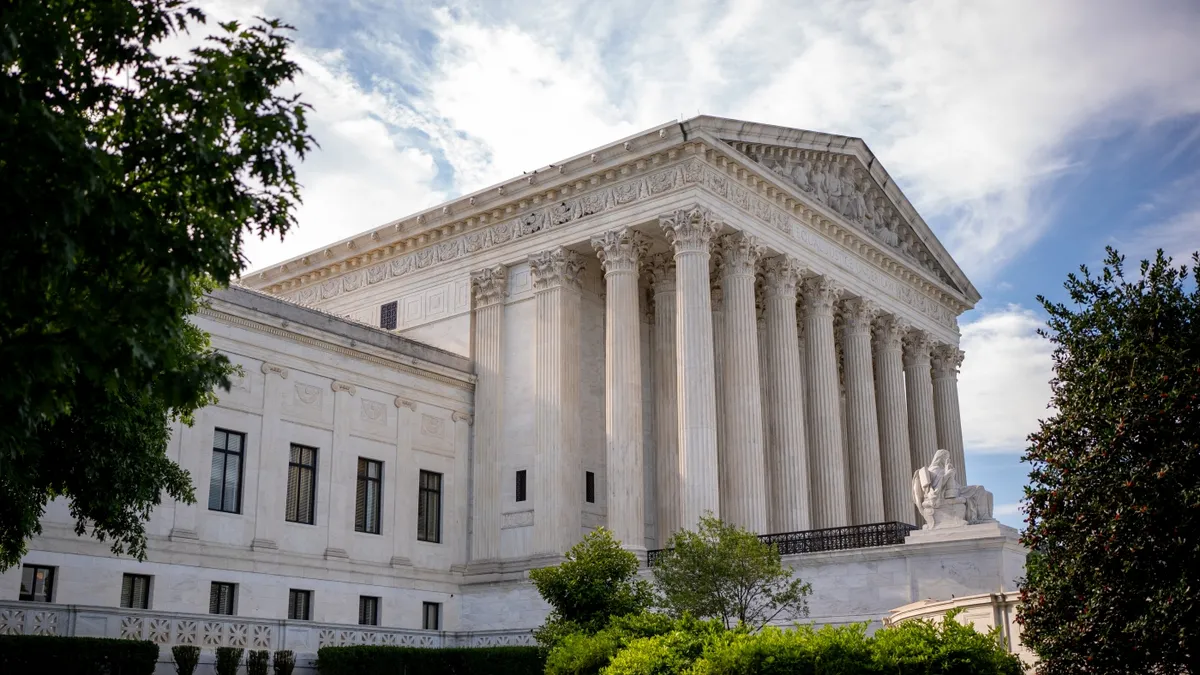
The Supreme Court opens a new term on Monday, and this session promises to be extraordinarily consequential, particularly concerning the extent of power granted to the president by the Constitution. With an extensive docket lined up, the Court will tackle numerous pivotal issues, including a case that could potentially dismantle what remains of the landmark Voting Rights Act. Other significant cases include challenges to campaign finance laws, the controversial Trump tariffs, and the president's authority to dismiss independent agency commissioners before their fixed terms conclude. Furthermore, the Court is expected to revisit the unresolved question from the last term regarding whether President Trump exceeded his executive powers when he issued an order barring automatic citizenship for children born in the United States.
Since beginning his second term, the conservative majority in the Court—comprising six justices to three—has significantly influenced judicial decisions. In a record-breaking eight months, the Court granted an unprecedented number of requests from Trump, specifically 20 applications to block lower court orders opposed by his administration. In stark contrast, only three requests were denied. The surge in these emergency applications has created a feedback loop, encouraging the Solicitor General to seek further emergency relief in various cases, as noted by Donald Verrilli, who served in that capacity during the Obama administration.
It is important to note that these emergency decisions are technically temporary, as they do not involve full arguments or comprehensive briefings. The Court merely makes quick decisions without providing detailed explanations. However, many of these cases are now returning to the Court for full hearings, where justices will engage in thorough discussions and eventually publish their findings for public scrutiny. Roman Martinez, a seasoned Supreme Court advocate, underscores the significance of early intervention, stating that without it, lower courts would have halted essential programs and policies crucial to the president’s agenda.
While the Court's quick interventions have allowed the administration to push forward with certain policies, they have also led to significant repercussions. In many instances, these temporary rulings have effectively ended cases before they could be fully adjudicated, resulting in a dismantling of various initiatives. The Education Department has faced severe cuts, and the Trump administration's control over private Social Security records is now established. Moreover, appropriated funds from Congress have been rendered useless as time has run out for their expenditure, effectively terminating programs that were meant to be funded.
This term, the Court will hear several critical cases that challenge the structure of the government. Although Congress established independent regulatory agencies over a century ago, the Court has permitted Trump to dismiss agency commissioners at will, with the Federal Reserve Board being the sole exception. Notably, Trump initiated his second term by firing Democratic commissioners before their terms ended. Recently, the justices agreed to hear a test case involving the dismissal of a Federal Trade Commissioner (FTC), an agency previously protected from such arbitrary firings by a unanimous Supreme Court decision in 1935.
As the Court prepares to deliberate on these cases, legal experts like Deepak Gupta emphasize the importance of the outcomes for Congress and the broader implications for institutional arrangements deemed constitutional in the aftermath of the Trump administration.
In addition to matters concerning presidential authority, the Supreme Court will also address several other contentious issues this term. One significant case involves a Colorado therapist who argues that her First Amendment rights are violated by state laws prohibiting conversion therapy for minors—a practice deemed dangerous by major medical associations. Additionally, the Court will hear arguments regarding the participation of transgender female students in school sports, highlighting the broader societal implications of these rulings.
The current term reflects a heightened focus on presidential power compared to other legal issues. Following a summer in which the justices were consistently engaged with the Trump administration's actions, tensions have escalated within the Court. For instance, Justice Neil Gorsuch and Justice Brett Kavanaugh recently expressed their frustrations with lower court judges, accusing them of defying the Supreme Court. This prompted responses from lower court judges across the ideological spectrum, indicating a growing concern over the Court's conduct.
Moreover, Justice Ketanji Brown Jackson has become known for her sharp dissents, particularly one in June where she criticized the Court for stripping lower court judges of their power to issue nationwide injunctions. Her dissent, which accused the majority of fostering a "zone of lawlessness," elicited a notable rebuttal from Justice Amy Coney Barrett, who argued that Jackson's views contradict over two centuries of precedent.
As the Supreme Court continues to navigate these complex issues, its approval ratings have steadily declined, leading to questions about its legitimacy and public trust. Law professor William Baude from the University of Chicago Law School emphasizes that the critical question moving forward is whether the Court can maintain its authority and convince the public that its decisions would remain consistent regardless of who occupies the presidency. As this term unfolds, the implications for the balance of power between the branches of government will undoubtedly be closely monitored.